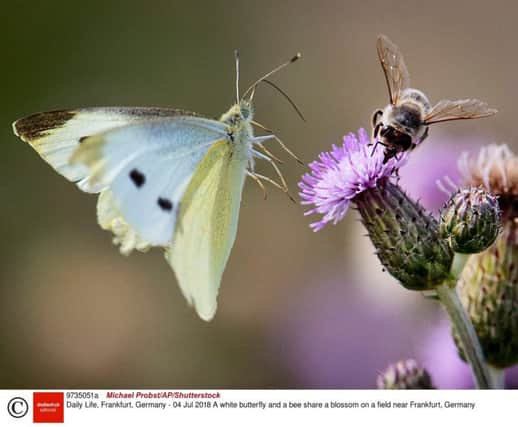Call for end to routine pesticide use to avert insect catastrophe


The latest research suggests many populations of invertebrates are facing “catastrophic collapse”.
Now a study from the University of Sussex, prepared for the UK’s Wildlife Trusts, warns of “profound consequences for all life on earth” if declines are allowed to continue.
Advertisement
Hide AdAdvertisement
Hide AdInsects provide important eco-system services. They are required to pollinate three quarters of the crops eaten by humans, so without them there could be shortages.
Their disappearance would also have a knock-on effect for bigger animals further up the food chain.
Studies from across the globe have highlighted dramatic losses in many species in recent decades, with factors including exposure to toxic pesticides, loss of habitat and climate change blamed.
The report states: “The consequences are clear; if insect declines are not halted, terrestrial and freshwater eco-systems will collapse, with profound consequences for human wellbeing.”
It concludes that urgent action must be taken to boost populations, including putting an end to routine and unnecessary use of pesticides and increasing efforts to create insect-friendly landscapes.
Conservationists are calling for a new UK environment bill with tough, legally binding pesticide reduction targets as well as the creation of a nature recovery network to reverse declines of insects and all wildlife.
Report author Dave Goulson, professor of biology at the University of Sussex, said: “Insects make up the bulk of known species on earth and are integral to the functioning of terrestrial and freshwater eco-systems, performing vital roles such as pollination, seed dispersal and nutrient cycling. “They are also food for numerous larger animals, including birds, bats, fish, amphibians and lizards. If we don’t stop the decline of our insects there will be profound consequences for all life on earth.”
Josie Cohen, head of policy and campaigns for Pesticide Action Network UK, said: “Reducing pesticide use is a challenge that society can no longer ignore.”
Advertisement
Hide AdAdvertisement
Hide AdDr Gary Mantle, chief executive of Wiltshire Wildlife Trust, said: “This unnoticed apocalypse should set alarms ringing. We have put at risk some of the fundamental building blocks of life.”
He added: “Insects and other invertebrates can recover quickly if we stop killing them and restore the habitats they require to thrive, but we all need to take action now.”
Matt Shardlow, chief executive of conservation charity Buglife, said: “Quality habitats are so isolated that most invertebrate species are failing to move north to keep track with the climate envelope in which they can survive.”